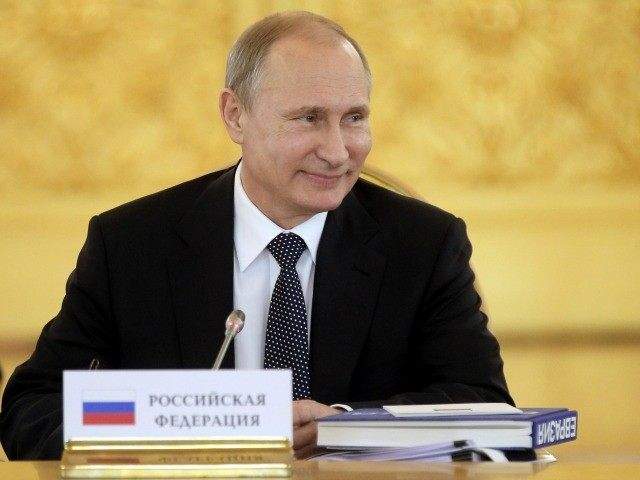Biden Gives Putin a Win with START Treaty Upgrade Agreement

The lower house of the Russian parliament ratified a five-year extension of the New START arms control treaty Wednesday, locking in an extremely generous offer President Joe Biden made with remarkable haste to Russian President Vladimir Putin, whom Biden’s political party previously regarded as the primary global villain of the century.
Biden’s predecessor, President Donald Trump, was skeptical of the New START treaty and pushed for significant concessions from the Russians, or better yet a new trilateral agreement that would include China. The Russians proposed a one-year extension of New START, which was due to expire in February 2021, but Biden surprised them by offering five.
Deutsche Welle reported Tuesday that Biden gave Putin his big win on arms control during their first official telephone conversation:The United States and Russia had “agreed in principle” to extend the arms treaty by five years following a phone call between US President Joe Biden and Russian President Vladimir Putin Tuesday.A Kremlin description of the call between the two leaders said they had both “expressed satisfaction” that diplomatic notes had been exchanged earlier Tuesday confirming that the treaty would be extended.The extension doesn’t require approval from lawmakers in the US. The White House press secretary Jen Psaki said the two leaders agreed to have their teams “work urgently” to iron out the details of the extension before the treaty’s expiration date, February 5.
There was no mention of any reciprocal concessions from the Russians.
Radio Free Europe (RFE) noted the White House and Kremlin accounts of the Biden-Putin call differed substantially, including their descriptions of the conversation about New START.RFE described Putin’s enthusiasm for extending the treaty as a “no-brainer for the Kremlin” because nuclear weapons, and the treaties surrounding them, are “by far the most prominent reminder of Moscow’s Cold War-era superpower status and remain the strongest argument that the United States and other global powers must continue to reckon with Russia.”
The Kremlin accordingly began its readout of the Biden-Putin call with “wording that appeared aimed to depict the United States and Russia as equals sharing a place at the top,” including Putin telling Biden that normalizing relations between Washington and Moscow would be in the best interests of the entire planet, “considering their special responsibility for supporting security and stability in the world.”
“The White House steered clear of such wording, seeming careful to separate the issue of New START — as well as plans to ‘explore’ discussions on broader arms-control and security issues — from the context of bilateral relations as a whole and from any specific aspects of those ties,” RFE noted.
Putin pushed hard for the renewal of New START throughout the Trump administration, at one point portraying the treaty as the last, tenuous safeguard against nuclear apocalypse.
“There won’t be any instruments limiting an arms race, for example, deploying space-based weapons. This means that nuclear weapons will be hanging over every one of us all the time,” Putin said in August 2019.
Photo: MAXIM SHIPENKOV/AFP/Getty Images
Link: Biden Gives Putin a Win with START Treaty Upgrade Agreement (breitbart.com)




